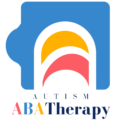School-Based ABA Therapy
Understanding ABA and Its Principles
Applied Behavior Analysis, often referred to as ABA, is a systematic approach to understanding and changing behavior. Grounded in behavior analysis, ABA therapy focuses on applying interventions based on the principles of learning to improve socially significant behaviors. This evidence-based practice has gained prominence in special education for its efficacy in addressing challenging behaviors and promoting skill development.
The Implementation of ABA in Schools
One of the areas where ABA has shown remarkable success is in school-based interventions. School districts across the country are increasingly recognizing the benefits of incorporating ABA into their special education programs. ABA in schools is not only for students with autism but can be a valuable resource for any student exhibiting challenging behaviors or requiring additional support to succeed academically and socially.
Benefits of ABA in School Settings
Students with autism often face challenges in developing social skills, communication, and academic abilities. ABA therapy addresses these challenges by providing individualized interventions tailored to the specific needs of each student. ABA in schools is not a one-size-fits-all approach; rather, it emphasizes personalized strategies to promote learning and growth.
Special Education Teachers and ABA
Special education teachers play a pivotal role in the successful implementation of ABA in schools. Their collaboration with ABA therapists ensures a cohesive and integrated approach to supporting students with autism spectrum disorder. Through the use of ABA teaching strategies, special education teachers can create a structured and supportive environment that facilitates the acquisition of new skills.
In the ever-evolving landscape of education, Applied Behavior Analysis (ABA) has emerged as a transformative force in supporting students with autism spectrum disorder and special needs. The integration of ABA in schools not only addresses challenging behaviors but also nurtures a positive and inclusive learning environment. As school districts continue to recognize the value of ABA in enhancing the educational experience of all students, we can anticipate a future where children with autism and special needs have the opportunity to learn and grow to their fullest potential.
FAQs About ABA in Schools
What is ABA therapy in the context of schools?
Applied Behavior Analysis (ABA) therapy in schools involves the systematic application of behavior principles to enhance socially significant behaviors in students. It is particularly beneficial for children with autism spectrum disorder and other special needs.
How does ABA address challenging behaviors in the school setting?
ABA employs evidence-based strategies to understand the function of challenging behaviors and develops interventions to replace them with more appropriate alternatives. This process contributes to creating a positive and conducive learning environment.
Can ABA be used in general education classrooms?
Absolutely. ABA is not limited to special education settings. Its principles can be applied effectively in general education classrooms to support diverse learners and address a wide range of behavioral challenges.
What role do ABA therapists play in schools?
ABA therapists collaborate with special education teachers and other school staff to design and implement individualized interventions. They conduct assessments, develop behavior plans, and provide ongoing support to help students with special needs succeed.
How does ABA contribute to the development of social skills in students with autism?
ABA employs strategies such as discrete trial teaching and pivotal response treatment to target and enhance social skills in students with autism. These evidence-based practices create opportunities for students to learn and practice social interactions in a structured manner.
Is ABA only for students with autism spectrum disorder?
While ABA has shown significant success in supporting students with autism, its principles can benefit a broader range of students with special needs. It is adaptable to various challenges and can be customized to address individual learning profiles.
How can school districts integrate ABA effectively?
Successful integration of ABA in schools requires collaboration between school districts, special education teachers, and ABA therapists. Training programs, workshops, and ongoing support are crucial to ensure that educators are equipped with the knowledge and skills to implement ABA strategies effectively.
What is discrete trial teaching, and how is it used in ABA?
Discrete trial teaching is a structured and systematic method used in ABA to teach new skills. It involves breaking down complex tasks into smaller, more manageable components, providing repeated opportunities for learning, and systematically reinforcing correct responses.

Conclusion
Early intervention for children with autism spectrum disorder is crucial for their overall development. By recognizing the signs of autism and initiating early intervention services, children with ASD can receive specialized support that targets their specific needs and challenges. Through a combination of therapies and interventions, such as Applied Behavior Analysis, speech therapy, occupational therapy, and the Early Start Denver Model, these programs strive to improve a child’s social, communication, and behavioral skills, positively impacting their development and improving their quality of life. The benefits of early intervention are substantial, as they set the stage for better outcomes in a child’s life and pave the way for improved interactions, social integration, and independence.
Services We Provide
Initial Assessment
Our initial assessment will help us focus our skills on the areas where the problem expresses itself the most. We can then start working on it and slowly build on that and expand our ABA therapy for autism to other precarious mental areas.
Early Intervention
ABA therapy for autism works best when applied early. We emphasize early intervention to help individuals fulfill their potential and progress in their educational, professional, and personal lives as independently as possible.
In-Home ABA Therapy
Our therapists collaborate with parents and caregivers, who are vital partners in the journey to positive change. Together, we build a strong foundation for progress for yourself and your loved ones.
School-Based ABA Therapy
Our interventions have been proven to help students succeed not only academically but also in building positive social relationships within the school community.
Telehealth ABA Therapy by a BCBA
Telehealth ABA therapy can be a game-changer. It breaks down barriers and makes essential therapy services more accessible to follow than ever before.
ADOS-2 Testing
The ADOS-2 is a semi-structured, standardized assessment instrument that includes play-based activities designed to observe signs of autism


